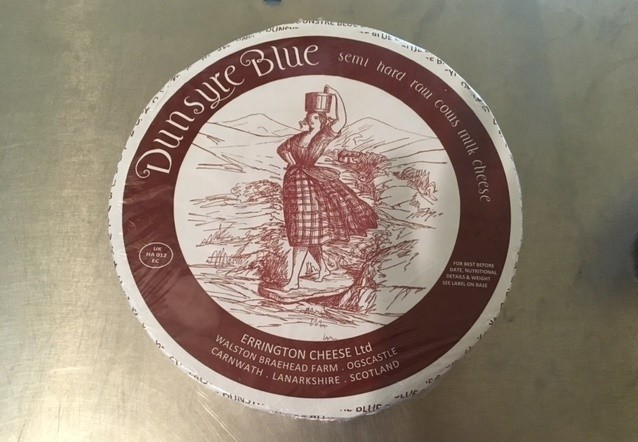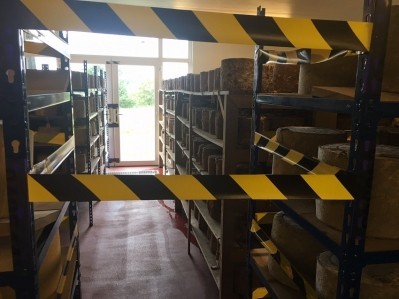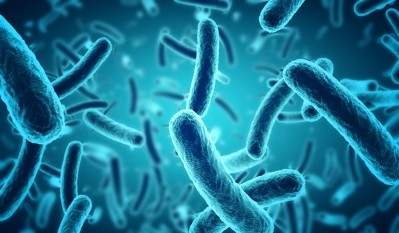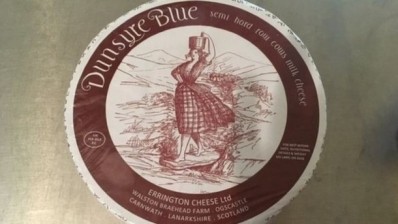E.coli death-linked cheesemaker cleared of food safety breaches

However, Errington Cheese co-owner Selina Cairns said she was “disappointed” that one batch of its Lanark Blue cheese and three batches of its Corra Linn brand had been condemned, due to potentially containing harmful pathogens.
She added there was no intention to put the batches on sale, claiming instead that her motivation for pursuing the matter through the courts was to “challenge the accusation that a year’s-worth of cheese was unsafe”.
Errington Cheese has been in locked dispute with South Lanarkshire Council and Food Standards Scotland (FSS) after August 2016’s E.coli outbreak was linked to its unpasteurised Dunsyre Blue cheese. The outbreak led to 22 food poisoning cases and the death of a three-year-old child.
In October 2017, the Crown Office said Errington would not face prosecution over the child’s death.
At the civil case held at Hamilton Sheriff Court, held in January, tests were presented by the council that showed the presence of E.coli in both Lanark Blue and Corra Linn.
Unidentified shiga toxin E.coli
Lanark Blue was shown to contain an unidentified shiga toxin E.coli (STEC) bacterium identical to that found in one batch of Dunsyre Blue. Three batches of Corra Linn, meanwhile, were shown to contain other unknown strains of E.coli.
Cairns said: “We are disappointed with this conclusion as we had hoped the sheriff would follow the approach to STEC advocated by the EU Commission, which is based on risk assessment, but we understand that the sheriff felt the need to be extra cautious.”
She believed it remained a problem that the validated testing methodology for STEC in food in the EU, available to food businesses, would not identify the strains of E.coli found in these four batches of condemned cheese by whole genome sequencing.
Cairns added: “Quite how a regulator should be regulating food business remains an issue that we had hoped would be clarified in this judgement, but will need to be addressed by the regulators, particularly into foodstuff where small amounts of E.coli are naturally found and cannot be completely eliminated.
“However, we’re pleased he agreed with our own experts that E.coli O157:H42 stx negative is non-pathogenic and completely harmless ‘bog standard’ E.coli, contradicting the opinion of the public analyst from Edinburgh Scientific services and SERL [Scottish E.coli O157/VTEC Reference Laboratory]. This erroneous opinion has been consistently maintained by FSS.”
‘Mindful of the risk’
In his 255-page document, sheriff Robert Weir said: “The evidence left me with the clear impression that the respondents were aware of, and took seriously, the acknowledged risk of finding pathological microorganisms in raw ewes’ milk, were mindful of the risk where E.coli O157 was concerned, and invested in processes, procedures and facilities, which were intended to address that risk, from flock to end-product.”
The judgment contradicted FSS’ view, based on a report from Health Protection Scotland’s the Incident Management Team (IMT), that Errington’s food safety management system was deficient and its Dunsyre Blue caused the 2016 E.coli O157 outbreak.
Ross Finnie, chair of Food Standards Scotland, said: “FSS is content that the sheriff’s judgment in the case of South Lanarkshire Council v Errington Cheese Ltd concluded that some of the cheeses produced by Errington Cheese Ltd were unfit for human consumption. However, we are disappointed this did not include all of the cheese involved in these proceedings.
“Food Standards Scotland was part of the IMT that worked to contain the E.coli O157 outbreak in Scotland in 2016 and which gathered the large volume of evidence required in this complex case.
“South Lanarkshire Council’s decision to bring condemnation proceedings, which FSS supported, was not taken lightly and all the organisations involved believed there was a strong case for taking such action. FSS will study the judgment fully to consider its implications.”
















